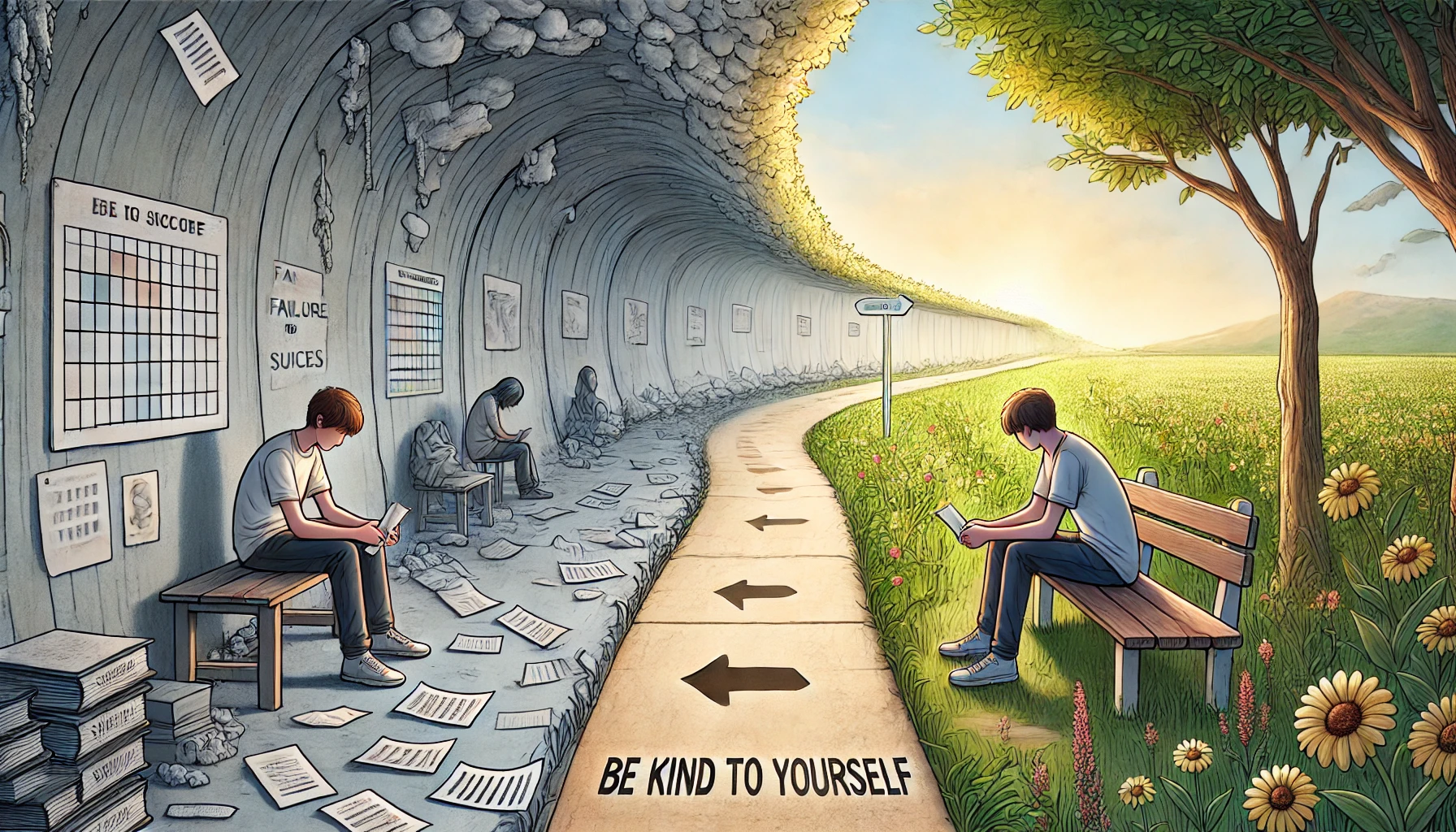One Line from a Seventh Grade Classmate Changed the Way I See Life

I used to think success was about marks, jobs, and applause. I was the silent kid in class—always studying, never talking, never playing, never asking if I even liked what I was doing. I grew up in a joint family with four kids, two grandparents, two uncles, two aunts, and a clear expectation: study hard, don't question it. My mom studied only until 10th standard, but she poured everything she had into our studies. Even though she didn't understand English, she sat with me through my homework. I did what I was told. That's what "good kids" did.
For years, it worked. I scored over 90% until 6th grade. But in 7th class, a classmate casually said something that shook my foundation: "Anup, why do you study so much? If I ask you the question related to the subject after that examination two days after your exam, you won't even remember the answer. What's the point?" That single question made me spiral—not immediately, but silently. My marks started falling, and by 10th I had dropped to 67%.
Even then, I didn't know how to say no. My mom wanted me to take science. She even arranged a donation to get me into a decent college. Her dreams were clear—my sister would be a doctor, and I, an engineer. I was terrified of college, but six months into 11th, I made my first real friends. We laughed, played, and watched movies. It felt like freedom—but it came at a cost. My marks plummeted to 55%. I didn't even attend a single physics practical in 12th.
We all knew we were going to fail. And we did. Out of the four of us, only one friend passed. The others went back to their hometowns to complete 12th. I stayed behind, alone again. But this time, something shifted in me. I didn't go back to my mom's expectations. I didn't crumble. I just started living on my own terms—wrong or right. I went to the movies alone, ate alone, wandered alone. It took me three full years to clear 12th, mostly because of physics.
My final attempt felt like a last stand: "If I don't pass this time, I'm done with education." And I passed.
That's when everything changed. I stopped listening to everyone about what to study. Despite getting a free engineering seat even after those years, I walked away from it. I chose computer science. Not because I had a vision—but because it felt like the first decision I had ever truly made for myself.
I remember handing over my messy 12th marksheets to the HOD. He looked at me and said, "What is this? You'll have to work really hard here." All I said was: "I just want one chance, Sir."
In college, I met a friend who had failed to crack IIT, but carried no ego about it. He was brilliant. More importantly, he was kind. He saw potential in me that I didn't. He taught me coding, logic, problem-solving—not just for marks, but for mastery. Together, we won 12 programming competitions. We even reached the finals at IIT Bombay. For the first time in my life, I tasted success that wasn't borrowed from someone else's expectations. It was mine. And I started to relax. I got comfortable. Maybe too comfortable.
That's when our paths began to diverge. I made mistakes in our friendship—big ones. He was carrying both his weight and mine, while I started enjoying the feeling of "arriving." He walked away eventually, and I'm glad he did. He chose the hard path, the right path. Today, he's doing work that genuinely inspires me. Even now, I hear his voice in my head when I get too comfortable: "This is just the start." I carry his mindset with me—it keeps me hungry, and keeps my ego in check.
A few days ago, a distant cousin of mine—just 18 years old—committed suicide after getting slightly lower marks in NEET. She was from a loving, supportive, well-off family. Her father had already arranged for her admission in any college she wanted. She wasn't pressured. She simply couldn't live with the failure of missing her own expectations.
That broke something in me again.
Because I've lived that shame. I've felt like a failure in rooms where people only remember how long I took to pass 12th. No matter what I do today—no matter how many competitions I win, how far I've come—they still see the "boy who took 3 years to finish 12th."
But now, I don't need them to see anything.
What they don't know is how hard I've worked. How far I've come. How much I've built—not just in skills, but in character. And I've learned something the hard way:
Failure isn't about falling short of society's expectations. It's falling short of your own potential and still choosing to get up and try again.
And success isn't about proving people wrong—it's about knowing, deep inside, that you're living right.
So if you're out there, stuck in a loop of failure, shame, or self-doubt—take a breath. You don't have to explain yourself to anyone. You just need to give yourself one honest chance.
That's where everything changes.